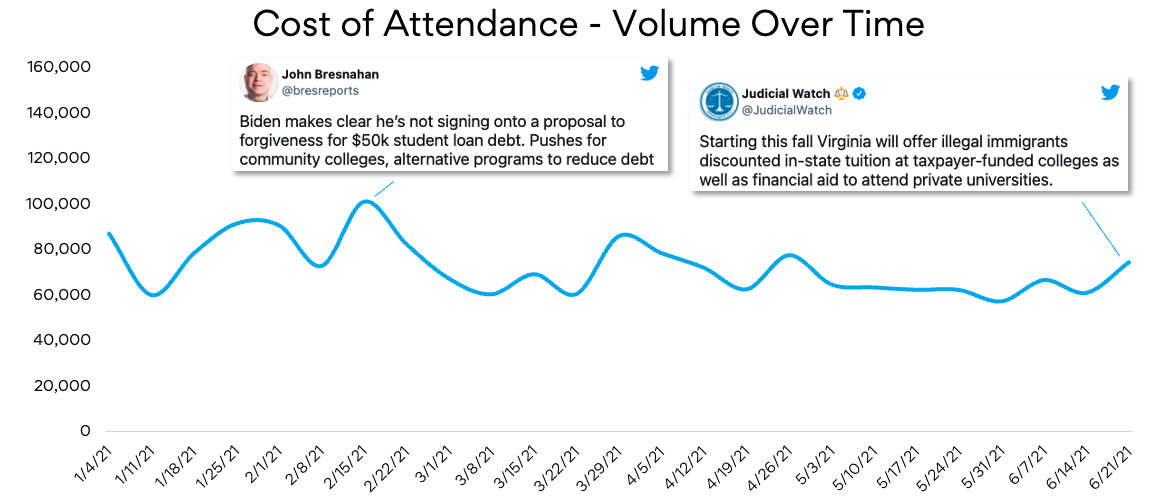The excerpt below is a component of the weekly Higher Ed Issues Landscape Report, which analyzes the top conversation trends in higher education for the past week and highlights qualitative and quantitative insights on the topics and universities that drove coverage.
An HTML version of the full report is available through this link
Last week, the Postsecondary Value Commission, managed by the Institute for Higher Education Policy and funded by the Gates Foundation, released a report that has raised questions around the value of a college education. The report found that of the 2,908 institutions included in the dataset, 650 failed to meet even the minimum benchmark of producing sufficient earnings to pay back the cost of a degree. About 25% of private universities and 15% of public universities that were part of the review failed to meet the same mark. While the school-by-school breakdown has not yet been released, the report is expected to elevate ongoing concerns around whether higher education institutions are still a driver of socioeconomic mobility.
By the Numbers:
- Among all 40 topics tracked by Canary, “Cost of Attendance” has remained the second-highest overall in terms of total mention volume over the last six months, trailing only COVID-19
- There have been more than 1.84 million online mentions around the cost of higher education since January 1st, a figure virtually mirroring that of the previous six months
- There have been over 420K online news mentions around the cost of higher education since the start of 2021

Other Topics We’re Watching: Free Speech
In our April 8th Higher Ed Issues Landscape Report, we analyzed the conversation around “Intellectual Diversity” after Florida legislators proposed a bill requiring public colleges and universities to survey students, faculty, and staff about their beliefs and viewpoints. Now, the same House Bill 233 has been signed into law. The state Board of Education and Board of Governors will now survey these campus members on an annual basis to ascertain “the extent to which competing ideas and perspectives are presented” and determine if individuals feel “free to express beliefs and viewpoints” in the classroom and on campus.
Top Concerns Expressed in Online Conversation:
- How will the “stale ideology,” which these measures are designed to address, be defined?
- Will certain professors be targeted for talking about “controversial” topics?
- Will survey results be skewed by students not being required to accurately complete it?
- How will the anonymity of respondents be protected?

